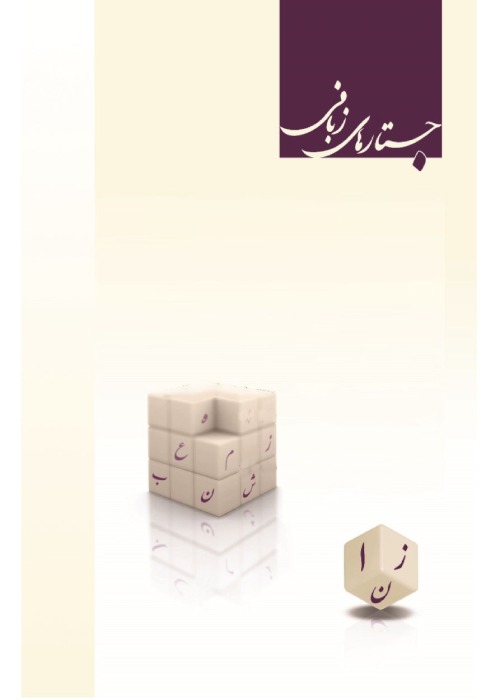Lexical and Post-lexical Stress Oppositions in Persian
1- IntroductionThere are semantically different words and structures in Persian that are identical in pronunciation except for the place of stress. These pairs which are called stress oppositions are of two types; the first type includes a lexical stress opposition between two lexical entries called a stress minimal pair. The second type is either the result of some phonological processes or the interaction among morphological, syntactic and phonetic factors at post-lexical level. One or both sides of these stress oppositions are syntactic phrases. There are many stress oppositions in Persian; however only five of which are stress minimal pairs. Being a minimal pair is not the sole analyzable feature in these stress oppositions. There are other features which merit further consideration. The objectives of this research were to introduce and discuss features of stress minimal pairs, to introduce and classify the whole possible stress oppositions in Persian according to their lexical/ syntactic categories, and to figure out whether stress shift caused semantic changes or it was the effect or consequence of different elements in stress oppositions. 2- Theoretical frameworkPhrase Structure Grammar (Chomsky, 1957) is the theoretical framework which was used in this research to classif post- lexical structures. In this theoretical framework the structure of constituents is specified using phrase structure rules:S → VP NPNP → {Art (Adj) N, Pro, PN}VP → V NP (PP) (Adv) 3- MethodologyThis research aimed at introducing different lexical and post-lexical stress oppositions in Persian. To this end, structures other than lexical entries were classified into noun/verb phrases using Phrase Structure Grammar. Accordingly, various stress oppositions might include two lexical entries, a lexical entry and a noun/verb phrase, two noun phrases, two verb phrases, a noun phrase and a verb phrase, as well as emphatic stress. It is noteworthy that the phonetic representation (PR) rather than the underlying representation (UR) was used to specify stress oppositions. Finally, the morphemes of stress oppositions where compared in order to specify the main reason of their semantic (or grammatical) difference. 4- Results & discussionAlthough Persian is so rich in terms of having stress oppositions, it only has five stress minimal pairs. The necessary condition that must be there for a stress opposition to be considered a stress minimal pair is that both its members must be lexical entries. Hence, a post-lexical stress opposition of which one member is the result of a phonological change, or one member or both members are a syntactic phrase is not considered a stress minimal pair. Lexical stress or being a stress minimal pair is not the only criterion to evaluate stress oppositions. Stress shift is regarded the main reason for meaning change if there is no other distinctive factor at work, that is, we can say stress shift has caused meaning change when both members of a stress opposition consist of identical morphemes, or one of the members is not the result of a phonological process. Otherwise, stress itself is the consequence of different morphemes or application of a phonological process. Accordingly, the findings of this research are in contrast with the studies in the literature which regarded the stress opposition between a word and a phrase as a minimal pair, or posited that the meaning difference between two unlelated words of a stress minimal pair is due to stress shift. 5- Conclusions & suggestions The significance of this paper is that it is the first research to address lexical and post-lexical stress oppositions in Persian and to discuss how they were created. Moreover, this paper was an attempt to reduce the uncertainty in regard to the nature and identity of stress oppositions through introducing and classifying them and using the titles “lexical and post-lexical stress oppositions” to designate them. A future research suggestion could be investigating lexical and post-lexical stress oppositions in other languages.
- حق عضویت دریافتی صرف حمایت از نشریات عضو و نگهداری، تکمیل و توسعه مگیران میشود.
- پرداخت حق اشتراک و دانلود مقالات اجازه بازنشر آن در سایر رسانههای چاپی و دیجیتال را به کاربر نمیدهد.


